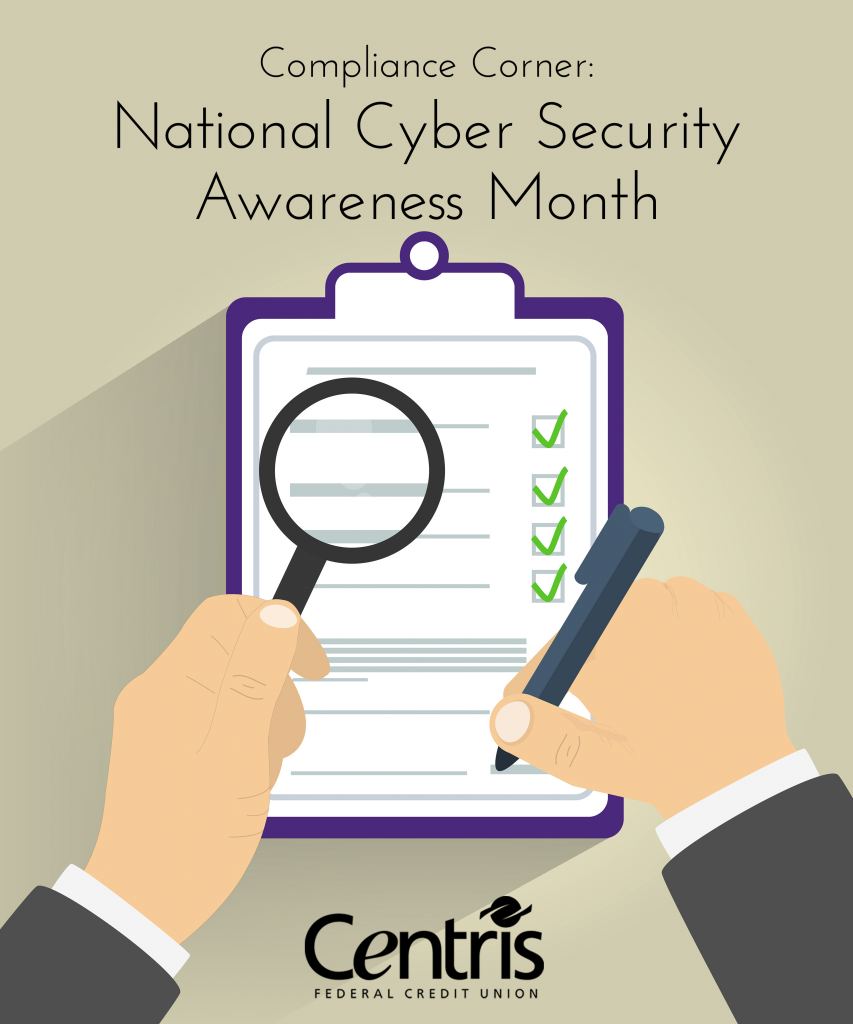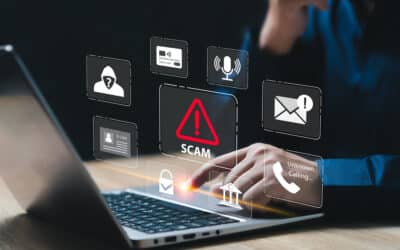Cybersecurity Education
Cybersecurity is protecting personal information stored electronically. It impacts anyone who uses technology. To educate the general public on cybersecurity, the U.S. Department of Homeland Security and the National Cyber Security Alliance declares October as Cyber Security Awareness Month. The National Cyber Security Alliance created the STOP.THINK.CONNECT campaign to inform consumers about cyber threats and provide Internet safety tips. Click here for more information about the campaign.
Cybersecurity is everyone’s responsibility. Through education and diligence, the threat of a cyber attack can be significantly reduced or prevented.
Centris member and Director of Cybersecurity Studies at Bellevue University, Ron Woerner, has made it his life’s work to educate and inform people about the risks of online activity and how to protect oneself. A few of his top tips include:
- Trust but verify – If an email or phone call seems suspicious, take the time to call the vendor/business to confirm its authenticity or lack thereof.
- Stay up to date on patches – A patch is a piece of software designed to update a computer program or its supporting data, to fix or improve it. Make sure the programs on your computer such as Adobe Flash, Microsoft, etc. are current.
- Be careful when using public wi-fi – It is very convenient to use public wi-fi; however, those airwaves are easy targets for hackers. Often times, these airwaves are insecure so it’s best to not use this wi-fi for anything sensitive.
Woerner has a wealth of knowledge on the importance of protecting one’s privacy. Click here to learn more about Woerner in our Spring 2016 InTouch newsletter.




